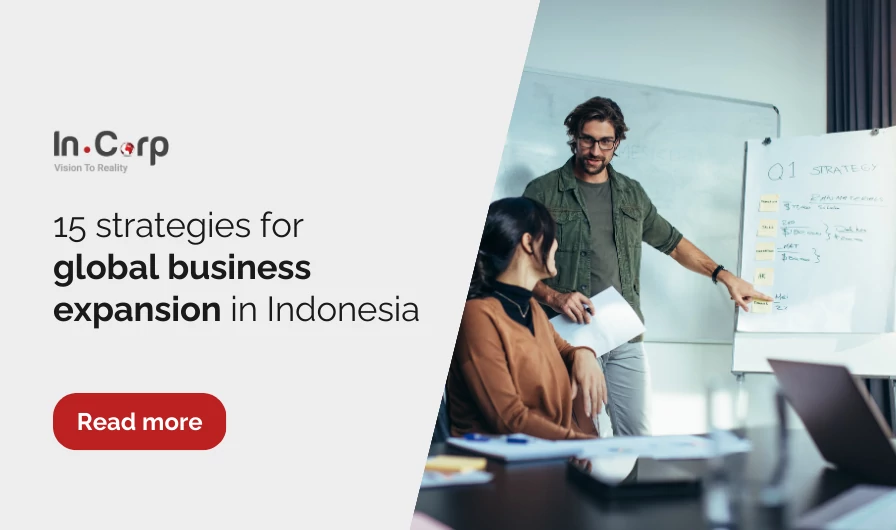Global business expansion involves strategically expanding operations beyond the home country to tap into new markets, reach a broader customer base, increase sales, and achieve global growth. While international expansion offers numerous benefits, it is crucial to understand both this strategy’s potential rewards and challenges.
In this article, we will explore the benefits of global expansion and provide 15 practical strategies to guide your business toward successful international growth.
Benefits of global expansion for business
Expanding into international markets offers several advantages for businesses of all sizes. By venturing into foreign territories, companies can extend their customer base, access new sources of revenue, enhance brand recognition, and tap into global talent. The potential for growth and expansion is significant when businesses enter new markets and adapt their products or services to meet the needs of diverse customers.
15 strategies for global business expansion
It is essential to employ effective strategies to ensure a seamless transition and maximize the chances of success in international markets. Here are 15 strategies to consider when expanding your business globally:
It is essential to employ effective strategies to ensure a seamless transition and maximize the chances of success in international markets. Here are 15 strategies to consider when expanding your business globally:
1. Finding the right partner
Establish long-term relationships with local partners who deeply understand the target market dynamics. Avoid transactional approaches that may harm brand perception during the initial stages of global expansion.
2. Know your market
Conduct comprehensive market research to analyze the Total Addressable Market (TAM) and the Serviceable Addressable Market (SAM). Collaborate with reliable local experts well-versed in local promotion and sales channels.
3. Tailor to your customers
Understand the market dynamics, language, cultural aspects, and purchasing habits of the target market. Customize your product or service accordingly. Leveraging the expertise of a local partner can be advantageous in navigating potential challenges.
4. Consider cultural disparities
Go beyond language barriers and consider cultural differences when adapting your product or service for international markets. Adjust your go-to-market strategy to ensure your brand resonates as an insider rather than an outsider.
5. Establish a diverse team
Build a team of local resources who can understand, enter, and expand in the foreign market. Explore partnerships, alliances, and direct hiring. Connect with leaders in country-specific industry associations for valuable insights.
6. Investigate the language skills of potential team members
Prioritize researching the target country’s language proficiency and purchasing power or GDP per capita. Gathering specific data will help assess your product’s likely acceptance or penetration rate in the international market.
7. Ensure accessibility across borders
Guarantee availability across various time zones to provide excellent customer service. Establish remote offices with local speakers in different jurisdictions to address language and response time concerns.
8. Determine product value on an international scale
Instead of using the broad term “international,” focus on identifying regions, countries, or communities where your product or service aligns best. Develop cultural connections and understand unique needs to create a global growth strategy.
9. Understand customs and culture
Determine the demand for your product and service in the target country. Research comprehensively on the local population’s customs, culture, and desires. Effectively communicate using a language familiar to them and expand only after understanding crucial differences.
10. Conduct market research
Exercise caution at every step of international expansion. Personally explore the new market, analyze the success or failure of similar products or services, and strategize based on this knowledge.
11. Engage firms in target countries
Employ firms in the target countries to integrate effectively with the local aesthetics and values. They can offer valuable insights into local market dynamics and help understand the behavior and preferences of the population.
12. Maintain brand standards
Develop a comprehensive brand book outlining your brand standards, including your mission, approved logos, and fonts. This internal point of reference guarantees that international partners align with your brand guidelines.
13. Customize messaging and marketing materials
Allocate sufficient time to comprehend the messaging and marketing materials necessary for international campaigns. Modify your marketing strategy to suit each market by conducting thorough research, testing, and implementing accordingly.
14. Adapt and overcome obstacles
Consider the impact of expanding into a new international market on your current operations. Address linguistic and cultural barriers, adapt to local laws, and anticipate financial hurdles to open accounts in the new country.
15. Familiarize yourself with cultural norms
Research and understand the cultural differences in the target markets, and adjust your business plans accordingly. Cultural norms significantly influence the success of a business in different countries.
Conclusion
Expanding your business globally requires careful planning and execution. By assembling an international team, researching language proficiency, considering time zones, and defining your products’ value on a global scale, you can pave the way for international success.
Furthermore, conducting market research, collaborating with local firms, maintaining brand standards, adapting to challenges, and respecting cultural norms is crucial. Engaging with professionals like InCorp Indonesia can help with essential tasks such as business licensing and company registration, allowing you to focus on growing and prospering your business without being burdened by intricate administrative aspects.



